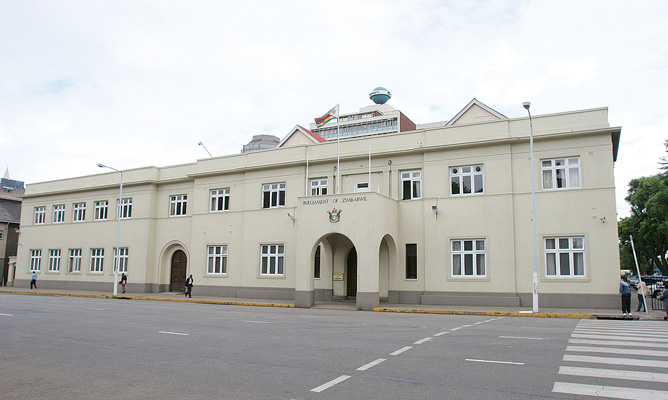
BY Miriam Tose Majome ONE of the bold moves made by the first post-independent Zimbabwe Parliament was passing the Legal Age of Majority Act in 1982, known as LAMA.
The Act has been repealed by subsumption in the General Laws Amendment Act. The Act reduced the age of majority/adulthood from 21 to 18.
Eighteen years was recognised as the age people became adults and endowed with legal capacity to perform acts with legal consequence such as voting, marrying, entering into contracts, etc.
There was a lot of public resistance and outcry by the usual resistant interest groups like parents, church organisations and cultural groups. The public sentiment was that government had sold out and given youth more freedom and rights than was good for them.
It was predicted that the moral fabric of society would be completely ripped asunder. There was a lot of heated debate up and down the country in the same mould as the debates around controversial social issues like contraception for schoolchildren or reducing the age of sexual consent.
Despite public resistance, the lawmakers stuck to their guns and passed the Act regardless. The newly independent Zimbabwean Parliament was lauded internationally with pioneering and championing a law with such far-reaching implications for women.
For the first time in the country’s history, black women above the age of 18 were deemed adults and were accorded the same rights as all other adults citizens. Before independence, customary practices and repressive colonial laws had colluded to keep black women on the same legal status as minor children no matter how old they grew to be.
Married women could do nothing without their husbands’ consent. They could not conclude contracts on their own. They could not buy immovable property in their own names or open bank accounts without their husbands’ consent.
- Chamisa under fire over US$120K donation
- Mavhunga puts DeMbare into Chibuku quarterfinals
- Pension funds bet on Cabora Bassa oilfields
- Councils defy govt fire tender directive
Keep Reading
They could not make any legally binding decisions on their own in their own capacities. They were just like children. Now women take things for granted and the normal activities and responsibilities of adulthood seem so easy and natural yet there was a time it was never like that.
Zimbabwean women may not have been as oppressed as Saudi Arabian women, but they were in the same league in terms of legal status and capacity. Among other things, Saudi women cannot apply for passports or travel abroad without the consent of their male guardians and they can be arrested and returned home if they flee from domestic violence.
Giving women legal status angered many men because they viewed it as a threat to patriarchy. Majority status meant women no longer depended on men for almost everything. Not being needed for everything chipped away greatly at male power and control.
The Act is the one thing that triggered the feminism debate. Many people, who were hearing the word for the first time, instantly and vehemently rejected it as a bad and dangerous idea.
Feminism was broken down to its simplest but mistaken meaning that it’s all about women wearing trousers, men being made to wash baby nappies, women bossing men around, women hating men, women refusing to get married or failing to find husbands.
Many people including women still think this is what women’s emancipation and empowerment is all about. LAMA provoked the debate about the rights of men to control what women wear to the extent that in the 80s, there was a long-running campaign and pressure by cultural pundits to lobby government to ban the wearing of trousers by women. To this day, faint flickers of this sentiment remain and they periodically rekindle into small flames.
The most significant implication of LAMA was its stated applicability to customary law. Theoretically, the Act recognised women as equal to men but the truth of this was soon to be tested. Could African women and men really be regarded as equals under customary law?
The test came in 1999 in the famous case of Magaya vs Magaya. In a judgment that surprised many people locally and internationally, the Supreme Court virtually overturned the Act and unequivocally reasserted African male superiority over African women.
The parties were Venia Magaya, an adult woman who was the eldest child and possibly the only daughter of her father in his first marriage. She had three younger half brothers from the father’s second marriage. When the father died without leaving a will, Venia, relying on the provisions of LAMA moved to be appointed the heir in the way an eldest son would and inherited the house left by their father.
She was appointed heir by the Community Court and her half brother opposed it and succeeded in cancelling her appointment and being appointed heir instead. He evicted Venia from the house and Venia challenged him citing the equality provisions of LAMA. The matter went to the Supreme Court on appeal but the Court surprisingly turned LAMA on its head.
The court unequivocally asserted that the customary law practice of favouring male offspring over female children for inheritance purposes should be upheld. The court overruled its own previous decisions in which it had upheld the provisions of LAMA regarding the equality of the sexes under customary law. It asserted that female children do not have the same status as male children under customary law.
The male-dominated Supreme Court under the direction of the late Chief Justice Anthony Gubbay said Africans were governed by customary law which deemed women as inferior.
The judgment returned black women to the status of children. The court pointed out other aspects where African women had no legal capacity. It said African women could not sue and claim seduction damages on their own and needed their fathers or brothers to do it for them.
They also could not consent to their own customary marriages without the involvement of their male relatives. The court said discrimination against women in inheritance was justified because of the nature of customary law. The court said the Magaya decision was granted in order to maintain the patrilineal tradition of African people. The court said in this case the injustices were justified because of the need to respect and maintain customary law.
The court cautioned against wide and unlimited application of LAMA. It said the intention of LAMA was not to do away with customary law and give women rights they did not have under customary law. To the surprise of many the court said the intention of LAMA was only to allow women to enter into contracts and be regarded as adults and bring lawsuits.
The criticism of the judgment was immediate and loud from all corners of the globe. The Chief Justice brooked no criticism and threatened to discipline lawyers who were criticising the judgment.
The situation subsisted until the 2013 Constitution. The Magaya judgment was completely overturned when the 2013 Constitution came into force.
The Constitution outlaws all forms of discrimination and struck down all laws which did not reflect that position. From 2013 women and men became equal under civil and customary law. The law is in place but the practice is behind.











